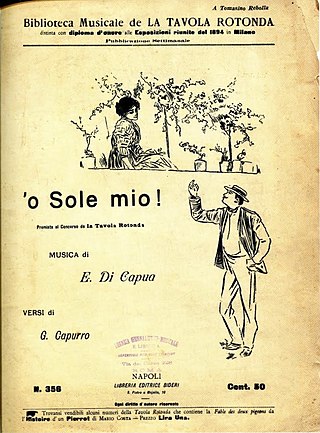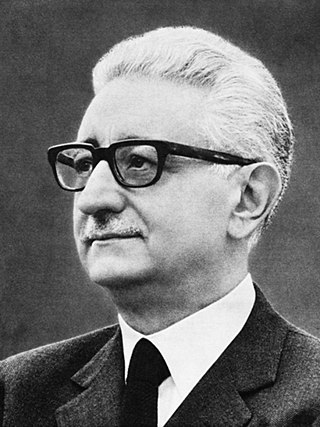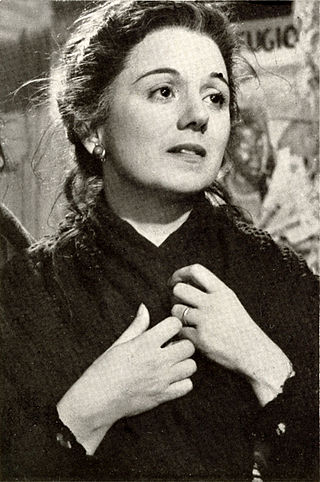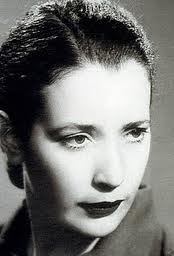Related Research Articles
The Camorra is an Italian Mafia-type criminal organization and criminal society originating in the region of Campania. It is one of the oldest and largest criminal organizations in Italy, dating to the 17th century. The Camorra's organizational structure is divided into individual groups called "clans". Every capo or "boss" is the head of a clan, in which there may be tens or hundreds of affiliates, depending on the clan's power and structure. The Camorra's main businesses are drug trafficking, racketeering, counterfeiting, and money laundering. It is also not unusual for Camorra clans to infiltrate the politics of their respective areas.

Naples is the regional capital of Campania and the third-largest city of Italy, after Rome and Milan, with a population of 909,048 within the city's administrative limits as of 2022. Its province-level municipality is the third-most populous metropolitan city in Italy with a population of 3,115,320 residents, and its metropolitan area stretches beyond the boundaries of the city wall for approximately 30 kilometres.

"'O sole mio" is a well-known Neapolitan song written in 1898. Its Neapolitan language lyrics were written by Giovanni Capurro and the music was composed by Eduardo di Capua (1865–1917) and Alfredo Mazzucchi (1878–1972). The title translates literally as "my sun" or "my sunshine". The lyrics have been translated to other languages.

Giovanni Leone was an Italian politician, jurist and university professor. A founding member of the Christian Democracy (DC), Leone served as the president of Italy from December 1971 until June 1978. He also briefly served as Prime Minister of Italy from June to December 1963 and again from June to December 1968. He was also the president of the Chamber of Deputies from May 1955 until June 1963.

Eduardo De FilippoOMRI, also known simply as Eduardo, was an Italian actor, director, screenwriter and playwright, best known for his Neapolitan works Filumena Marturano and Napoli Milionaria. Considered one of the most important Italian artists of the 20th century, De Filippo was the author of many theatrical dramas staged and directed by himself first and later awarded and played outside Italy. For his artistic merits and contributions to Italian culture, he was named senatore a vita by the President of the Italian Republic Sandro Pertini.

Società Sportiva Calcio Napoli, commonly referred to as Napoli, is an Italian professional football club based in the city of Naples that plays in Serie A, the top flight of Italian football. In its history, Napoli has won three Serie A titles, six Coppa Italia titles, two Supercoppa Italiana titles, and one UEFA Cup.
Canzone napoletana, sometimes referred to as Neapolitan song, is a generic term for a traditional form of music sung in the Neapolitan language, ordinarily for the male voice singing solo, although well represented by female soloists as well, and expressed in familiar genres such as the love song and serenade. Many of the songs are about the nostalgic longing for Naples as it once was. The genre consists of a large body of composed popular music—such songs as "'O sole mio"; "Torna a Surriento"; "Funiculì, Funiculà"; "Santa Lucia" and others.

Massimo Ranieri is an Italian singer, actor, television presenter and theatre director.

Clelia Matania was an Italian film and voice actress.

Rai Fiction is an Italian production company founded in 1997. Owned and operated by Radiotelevisione Italiana (RAI), the national broadcasting company of Italy, the company produces content for Rai's channels, producing animations, sitcoms, and other programmes. Rai Fiction also works in association with foreign production studios and TV channels as well as other production companies in Italy.
Marina Confalone is an Italian actress, screenwriter, theatre director, writer, holder of five David di Donatello awards.
Giulio Manfredonia is an Italian film director and screenwriter.

Anna Maria Ortese was an Italian author of novels, short stories, poetry, and travel writing. Born in Rome, she grew up between southern Italy and Tripoli, with her formal education ending at age thirteen. Her first book, Angelici dolori, was issued in 1937. In 1953 her third collection, Il mare non bagna Napoli, won the coveted Viareggio Prize; thereafter, Ortese's stories, novels, and journalism received many of the most distinguished Italian literary awards, including the Strega and the Fiuggi. Although she lived for many years in Naples following the Second World War, she also resided in Milan, in Rome, and for most of the last twenty years of her life in Rapallo. L'iguana, Ortese’s best-known work in English translation, was published in 1987 as The Iguana by the American literary press McPherson & Company. As of 2023, what she considered as her most important work, the novel Il porto di Toledo (1975), had not been translated into English yet.

Viola Carofalo is an Italian politician and former national spokesperson and leader of Power to the People, a coalition of parties, movements and associations which contested the 2018 Italian general election.
Annalaura di Luggo is a multimedia artist and film-maker based in Naples.

Lina Mangiacapre was an Italian feminist playwright and filmmaker.
Gloria Radulescu is an Italian actress.

Miriam Candurro is an Italian actress.

The history of cinema in Naples begins at the end of the 19th century and over time it has recorded cinematographic works, production houses and notable filmmakers. Over the decades, the Neapolitan capital has also been used as a film set for many works, over 600 according to the Internet Movie Database, the first of which would be Panorama of Naples Harbor from 1901.

Antonio Gerardi is an Italian actor and radio presenter.
References
- ↑ "Non dirlo al mio capo - Fiction Travel". Fiction Travel (in Italian). Retrieved 2016-10-25.
- ↑ Coppola, Fabiana (2016-05-04). "Fiction girate a Napoli: a breve nuove riprese in città". Voce di Napoli. Retrieved 2016-10-25.